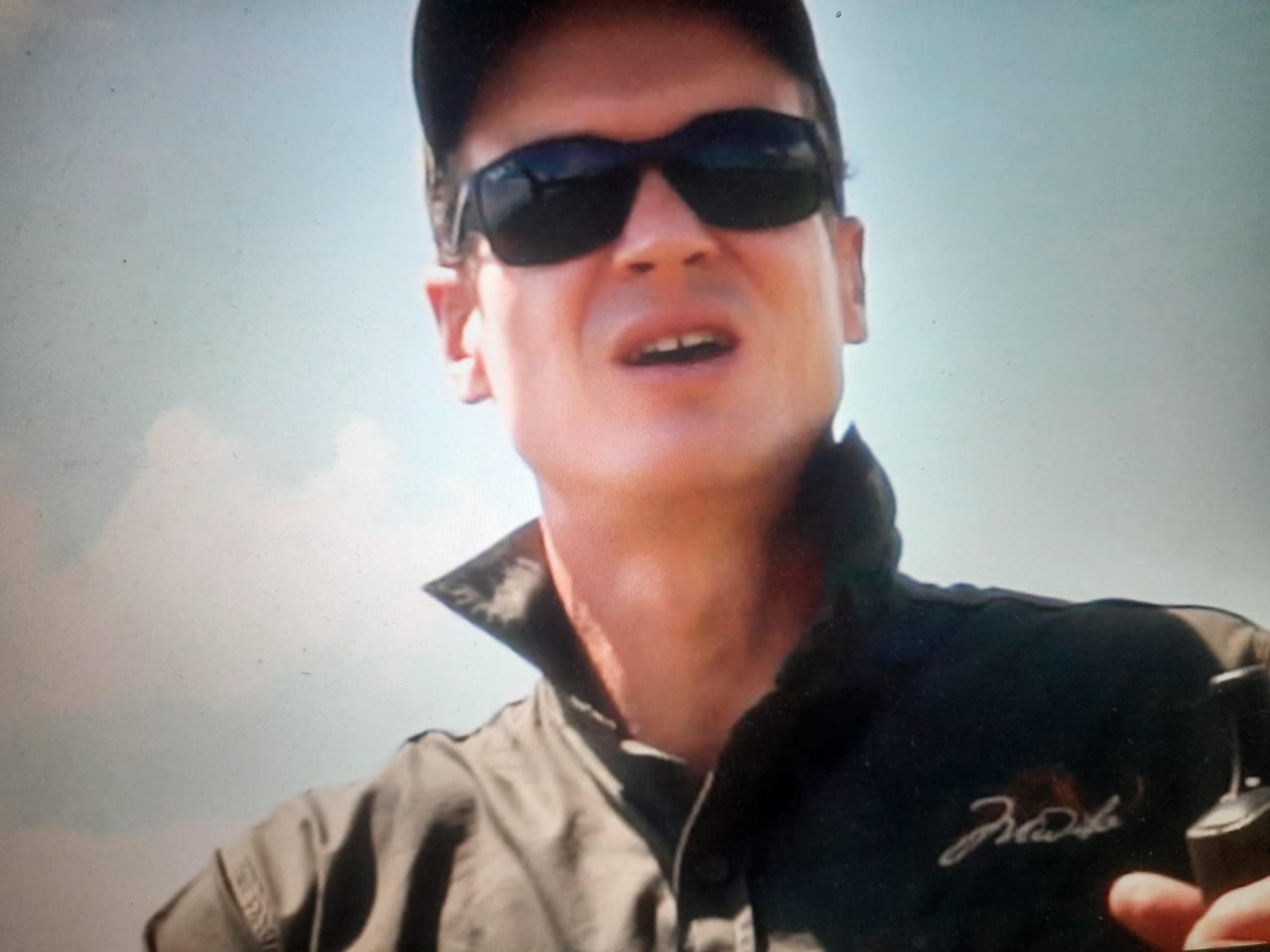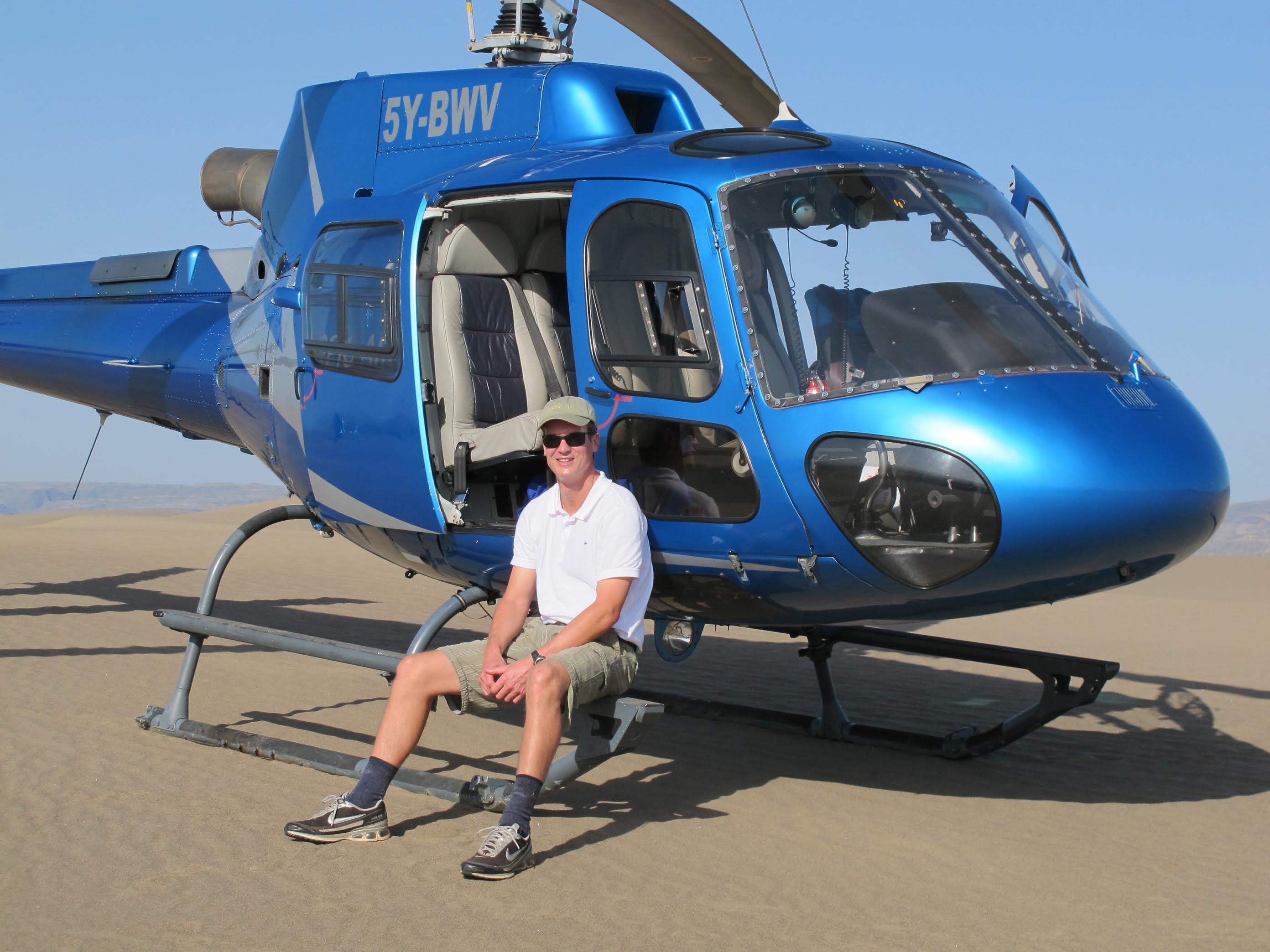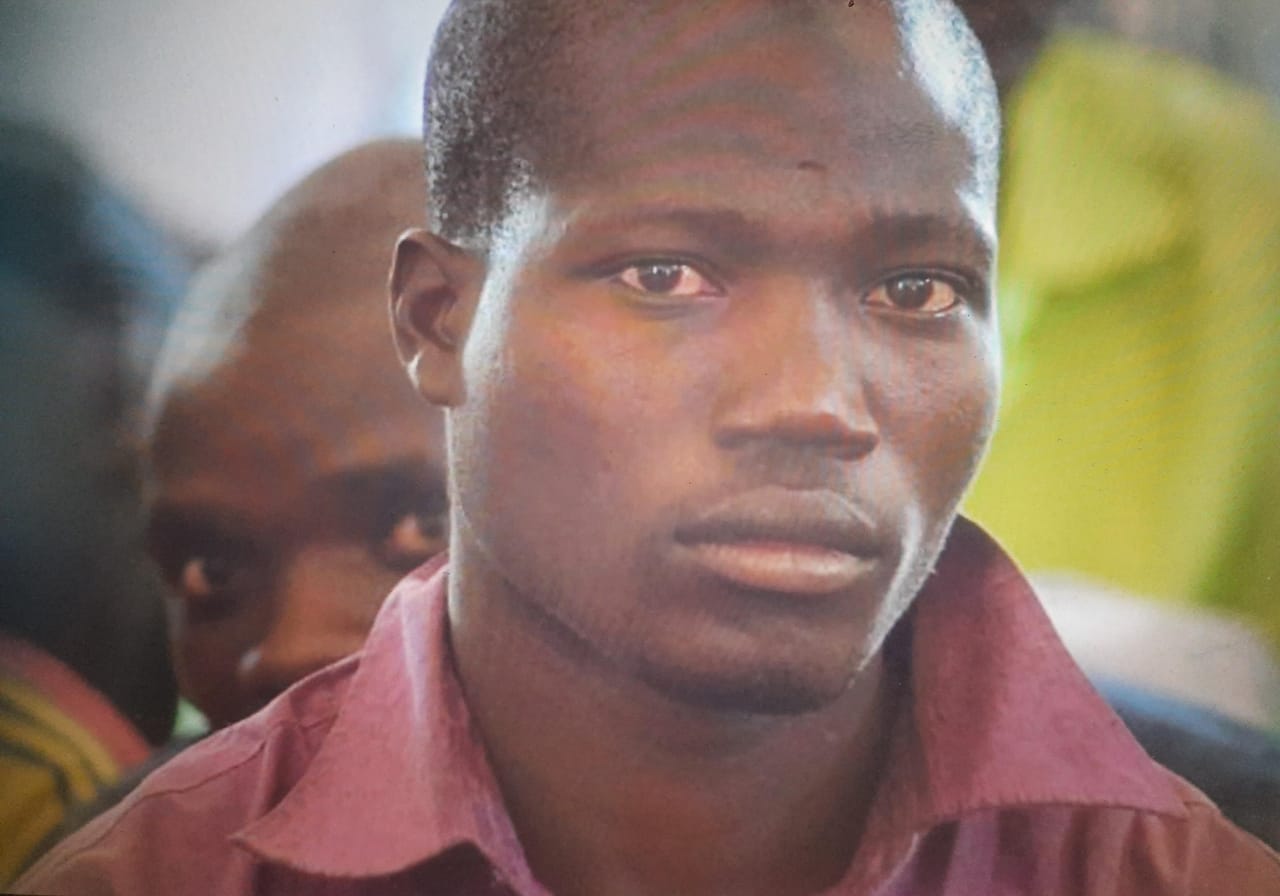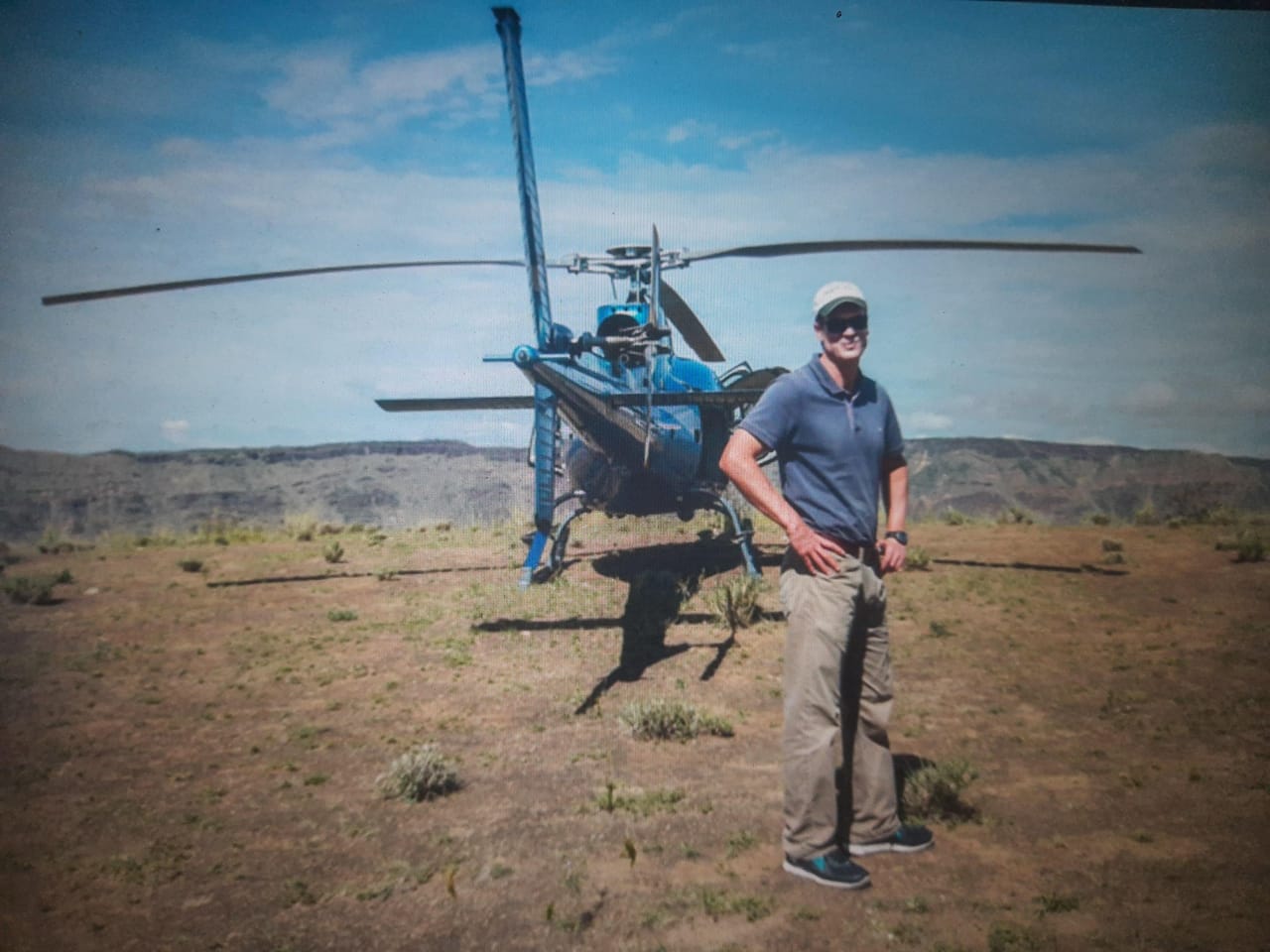British pilot Roger Gower, 37, tragically lost his life while engaged in valiant efforts to prevent poaching activities in Maswa Game Reserve in Tanzania in late January 2016. Despite surviving the helicopter crash, he sustained severe injuries, and his life was cut short as he awaited medical assistance in the remote and challenging location where the incident occurred. ‘Death on the Beach: Tanzania: Shot From The Sky’ on Investigation Discovery chronicles Roger’s sacrifices made in the pursuit of wildlife conservation.
Who Was Roger Gower?
Tanzania is a repository of some of the most breathtaking wonders on Earth. When one envisions Tanzania, they conjure images of the awe-inspiring Ngorongoro Crater, expansive savannahs, the iconic Serengeti, spanning the Mara and Arusha Regions, and beyond. Renowned for its rich wildlife, the East African nation boasts the presence of the big five game animals alongside Africa’s tallest peak, Mount Kilimanjaro, and the pristine powdery beaches lining its Indian Ocean coastline.

However, amid its natural splendors, Tanzania grapples with a myriad of challenges, including illegal wildlife trades, the massacre of elephants, and the operations of organized criminal networks involved in activities ranging from arms and drug trafficking to human exploitation. For one British man, Tanzania became a personal paradise. Roger Gower, a 37-year-old pilot and Birmingham resident, made the East African country his home in September 2015 when he accepted a position at Friedkin Conservation Fund.
According to Roger’s best friend, Tom Whitelock, this move seamlessly blended Roger’s passion for flying with his deep commitment to animal welfare. Roger’s affinity for animals and nature is traced back to his early years, evident in anecdotes shared by his brother, Max Gower. Even at the tender age of 5, Roger would return home with creatures like worms and spiders, showcasing an innate fascination with the animal kingdom. Max recalled how nature and animals fascinated him as he tried to decode their mysteries from a very early age.
As the youngest of three brothers growing up in Birmingham, Roger’s competitive spirit and proficiency in sports, particularly cricket, football, and golf, were noteworthy, earning him admiration from friends like Tom. Although Roger initially pursued a career in accountancy after obtaining a 2.1 degree in theology from Bristol University, he felt a compelling need for adventure after qualifying. Abandoning the accountancy path, he embarked on a journey across Australia, Sri Lanka, and Asia.
The prospect of obtaining a helicopter pilot’s license intrigued him, leading to training in Gainesville, Florida, in 2004. Following his qualification, Roger stayed in Florida to instruct others in flying. In 2008, a former client enticed Roger to Africa, promising a unique blend of wilderness and unparalleled flying experiences. Initially settling in Zanzibar, he secured a position with Tropic Air in Kenya, one of sub-Saharan Africa’s most prominent commercial aviation businesses. It ensured enriching flying experiences while offering good money.
How Did Roger Gower Die?
Roger spent nearly five years in Kenya before an emerging romance with a Brazilian woman he met in Mexico prompted his relocation to Tanzania in September 2015. His new job at Maswa Game Reserve, covering an expansive 2,100 square kilometers bordering the Serengeti National Park, involved flying tourists over the reserve for wildlife observation. Beyond tourism, he played a pivotal role in conservation, particularly in anti-poaching efforts. A part of his job description also required him to gather evidence of poaching activities.

Engaged in surveillance flights to detect signs of poachers, he confronted the harsh reality of a highly lucrative illegal trade in elephant tusks and rhino horns, exacerbated by the economic challenges Tanzanians faced. Poachers, armed and politically connected, posed a formidable threat, and Roger dedicated himself to the fight against this destructive trade. On January 28, 2016, a ground patrol unit from the Friedkin Conservation Fund swiftly mobilized to investigate the echoes of gunfire reverberating through the Maswa Game Reserve.
The team ventured through dense undergrowth, alerting air support the following morning to aid in locating the suspected poachers. The responsibility fell on 37-year-old Friedkin helicopter pilot Roger and his South African colleague, Nick Bester’s shoulders. Reports stated Nick was a safari guide in the neighboring Mwiba Wildlife Reserve. As they flew over the reserve, the aerial team soon discovered three recent elephant carcasses, their majestic tusks still intact—an unmistakable indicator that the poachers were still in the vicinity.
Executing low-altitude maneuvers, Roger encircled the area to gain a more detailed perspective. He immediately identified what appeared to be a stash of ivory perched on a small rocky hill. The poachers, realizing they were exposed, emerged from the thick vegetation, unleashing a barrage of gunfire from high-powered mark four rifles at the helicopter. A fellow operative involved in the mission recounted the harrowing encounter, revealing that one of the bullets fired by the poachers pierced through the helicopter’s floor, fatally injuring the pilot.
The bullet ascended through Roger’s seat, striking his leg and penetrating his shoulder before exiting through the roof. In a feat of extraordinary skill, the injured pilot managed to guide the aircraft to a descent. While Nick promptly disembarked and sought refuge in the cover of a bush, the ground patrol units raced against time to reach the injured pilot. Tragically, Roger succumbed to his injuries before the rescue team could arrive at the spot. Nick suffered a fractured vertebra and two broken ribs in the crash landing but survived his injuries.
Who Killed Roger Gower?
The investigators revealed that the poachers used AK-47s as their primary weapon to bring down the helicopter. The show recalled how challenging it was for the authorities to gather information about the perpetrators since the community was aware of the organized poaching gangs and afraid of repercussions if anybody ratted them out. However, a British pilot’s death while saving elephants in Tanzania brought immense pressure from the international community on the government’s shoulders, and a prompt investigation was launched.

On January 31, 2016, three days after the tragic event, the police conducted extensive house-to-house searches in villages surrounding the Maswa Game Reserve, leading to the detention of five individuals. Among those arrested were the supplier of ammunition and an individual who facilitated accommodation for the poachers within the reserve near Serengeti National Park. Subsequently, on February 11, 2016, five suspects, facing charges of economic sabotage and unlawful possession of firearms, appeared in court.
The four remaining suspects were specifically charged with Roger’s murder. Notably, Njile Gunga, a 28-year-old farmer from Sungu, emerged as a key figure, accused of shooting Roger. Identified as a significant player in ivory trafficking, Njile and his gang were allegedly found with $15,000 worth of ivory tusks upon their arrest. All nine suspects were convicted of unlawful weapon possession, receiving prison sentences exceeding 15 years. However, information regarding their conviction for Roger’s murder remains undisclosed.
Read More: McKinney Quadruple Murder: Raul Cortez Remains on Death Row Today


You must be logged in to post a comment.